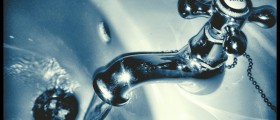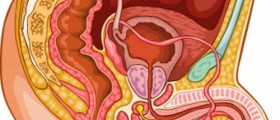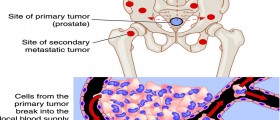Ever wonder how long will HoLEP last (that is when will one need another operation again)?
Here is the answer: at year 5, 3% chance and at year 10, a 5% chance. See the following abstract. I have no access to the full paper.
J Endourol. 2015 Jul;29(7):797-804.
Reoperation After Holmium Laser Enucleation of the Prostate for Management of Benign Prostatic Hyperplasia: Assessment of Risk Factors with Time to Event Analysis.
Elkoushy MA1,2, Elshal AM1,3, Elhilali MM1.
Abstract
PURPOSE:
To determine risk factors of reoperation after holmium laser enucleation of the prostate (HoLEP) .
METHODS:
A prospectively maintained database was reviewed for patients undergoing HoLEP. Baseline and follow-up data were compared in terms of International Prostate Symptoms Score, quality of life, peak flow rate, residual urine, and prostate-specific antigen (PSA) at 1, 6, and 12-months and then annually. Perioperative and late adverse events were recorded. Reoperation was defined as the need for any surgical intervention to relieve bothersome LUTS after HoLEP.
RESULTS:
A total of 1216 HoLEP procedures were performed between March 1998 and October 2013 with a mean prostate volume of 94.8 ± 52.7 cc. Catheter time and hospital stay were 1.4 ± 1.9 and 1.3 ± 1.6 days, respectively. After a median follow-up of 7.6 years (1-14 years), 52 (4.3%) patients needed reoperation for recurrent LUTS, including 13 (1.07%) for residual/recurrent adenoma, 14 (1.15%) for bladder neck contracture (BNC), and 25 (2.05%) for de novo urethral stricture. In multivariate regression, smaller prostate size (
Here is the answer: at year 5, 3% chance and at year 10, a 5% chance. See the following abstract. I have no access to the full paper.
J Endourol. 2015 Jul;29(7):797-804.
Reoperation After Holmium Laser Enucleation of the Prostate for Management of Benign Prostatic Hyperplasia: Assessment of Risk Factors with Time to Event Analysis.
Elkoushy MA1,2, Elshal AM1,3, Elhilali MM1.
Abstract
PURPOSE:
To determine risk factors of reoperation after holmium laser enucleation of the prostate (HoLEP) .
METHODS:
A prospectively maintained database was reviewed for patients undergoing HoLEP. Baseline and follow-up data were compared in terms of International Prostate Symptoms Score, quality of life, peak flow rate, residual urine, and prostate-specific antigen (PSA) at 1, 6, and 12-months and then annually. Perioperative and late adverse events were recorded. Reoperation was defined as the need for any surgical intervention to relieve bothersome LUTS after HoLEP.
RESULTS:
A total of 1216 HoLEP procedures were performed between March 1998 and October 2013 with a mean prostate volume of 94.8 ± 52.7 cc. Catheter time and hospital stay were 1.4 ± 1.9 and 1.3 ± 1.6 days, respectively. After a median follow-up of 7.6 years (1-14 years), 52 (4.3%) patients needed reoperation for recurrent LUTS, including 13 (1.07%) for residual/recurrent adenoma, 14 (1.15%) for bladder neck contracture (BNC), and 25 (2.05%) for de novo urethral stricture. In multivariate regression, smaller prostate size (
Loading...
—-So it could be more than 110gram was removed. Or Dr. K was thinking about an average prostate size
I have often thought the same. I think the numbers are correct since they came from the operative report and the biopsy report. I have long suspioned that Dr. K likes to use medically PC terms to gloss over details. For instance at the consult she kept using the term leakage instead of incontinence, even when I pressed her.
It might be possible that during the healing process it could shrink beyond what is cut out due the heat of the laser damaging good tissue. Just a thought. I know during the first 3 months I felt like I had lots of electrical sparks running through my prostate. I assume that was the nerves healing during the “reforming” process.
It seems to me that both aquablade and FLA-BPH are superior techniques in that the both use a precise guidance system to reduce damage to good tissue.
Also HoLEP does cut away part of the prostate that is adjacent to the bladder. I am assuming that is part of the prostate capsule. Am I correct?
BTW during the first week I had more than leakage I had a gusher. There was absolutely no control. I wet my pants three times the day I was released. (That was the day after surgery) By the second week control was returning. If I stayed in one position, such as driving, I had no problems.
Sorry about the randomness of this response.
I have often thought the same. I think the numbers are correct since they came from the operative report and the biopsy report. I have long suspioned that Dr. K likes to use medically PC terms to gloss over details. For instance at the consult she kept using the term leakage instead of incontinence, even when I pressed her.
It might be possible that during the healing process it could shrink beyond what is cut out due the heat of the laser damaging good tissue. Just a thought. I know during the first 3 months I felt like I had lots of electrical sparks running through my prostate. I assume that was the nerves healing during the “reforming” process.
It seems to me that both aquablade and FLA-BPH are superior techniques in that the both use a precise guidance system to reduce damage to good tissue.
Also HoLEP does cut away part of the prostate that is adjacent to the bladder. I am assuming that is part of the prostate capsule. Am I correct?
BTW during the first week I had more than leakage I had a gusher. There was absolutely no control. I wet my pants three times the day I was released. (That was the day after surgery) By the second week control was returning. If I stayed in one position, such as driving, I had no problems.
Sorry about the randomness of this response.
Loading...
Ever wonder how much prostrate is removed by HoLEP?
Here is the answer: ~ 50-85%.
This is from a paper, HoLEP has come of age by GIlling in 2015. I have no acces to this paper. However, tables in that paper are free.
semanticscholar.org/paper/HoLEP-has-come-of-age-Vincent-Gilling/b9bc47142fb6b6b8b84da14742fbe265adc6575d
(Supply the usual header to the above link)
Here is the answer: ~ 50-85%.
This is from a paper, HoLEP has come of age by GIlling in 2015. I have no acces to this paper. However, tables in that paper are free.
semanticscholar.org/paper/HoLEP-has-come-of-age-Vincent-Gilling/b9bc47142fb6b6b8b84da14742fbe265adc6575d
(Supply the usual header to the above link)
Loading...
I am new to and ignorant about BPH and am struggling to learn more,so plse don't take what I said seriously.
I did a lot of research just in order to answer ur questions.
To my understand, 214cc prostrate is a super large prostate. It is way beyond TURP (only work if prostate
I did a lot of research just in order to answer ur questions.
To my understand, 214cc prostrate is a super large prostate. It is way beyond TURP (only work if prostate
Loading...
Part of my reply to u somehow was missing in my previous post and my reply is given below.
I am new to and ignorant about BPH and am struggling to learn more,so plse don't take what I said seriously.
I did a lot of research just in order to answer ur questions.
To my understand, 214cc prostrate is a super large prostate. It is way beyond TURP (only for prostate
I am new to and ignorant about BPH and am struggling to learn more,so plse don't take what I said seriously.
I did a lot of research just in order to answer ur questions.
To my understand, 214cc prostrate is a super large prostate. It is way beyond TURP (only for prostate
Loading...
Thanks! See full text during compose, but after "send" only partial text appears in reply.
Loading...
Yes it is extremely large. HoLEP or FLA-BPH are the only treatment that could handle it. Possibly PAE? I might have been able to get into a clinical trial for PAE. They were looking for men with a very large prostate. I found about it after my procedure.
Loading...
And super large prostates can produce very high PSAs even with no cancer present as in my situation (why a PSA alone can never be relied upon for a cancer reading). My prostate was 150cc+ and my PSA was 24 (!!) just before my HoLEP. I have not had another PSA since, but I have my annual physical in December and I will be real curious what my PSA will be.
Loading...
Yes I had extremely high PSA readings. That is why it is not the sole test to determine cancer. My biopsy confirmed there was no cancer. I had a 6 month postoperative checkup and the PSA was .042. A very dramatic decrease. I believe that the expected reading should be 1 or less.
Loading...
I found a critical paper which hopefully will answer ur question. I am working on it by extracting the key results from the paper. it will take me a lot of time.
Loading...
The journal requires subscription and I had someone helped me to get it. I need two more days to work on it.
The info is of general interest to readers of this thread.
The info is of general interest to readers of this thread.
Loading...

















